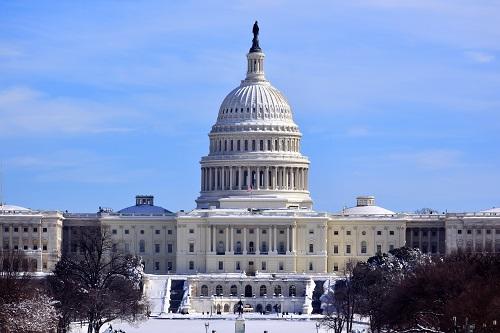

And, with all it offers, it's almost enough to make you believe in Santa.The Washington Post termed the legislation, "a mammoth package of emergency legislation" containing upwards of 5,000 pages. (The full text of that bill is available here).
According to the U.S. Travel Association, the bipartisan legislation contains numerous provisions designed to aid the struggling travel and tourism industry and to help bring back economic activity and jobs. And among these are the long-awaited PPP loans to quasi-governmental agencies (translation: CVBs, sports commissions, tourism bureaus, chambers of commerce and others).
The U.S. Travel Association synopsis of the legislation can be found here, but the Reader’s Digest version of it is as follows:
PPP: The new relief package expands eligibility to both nonprofit and quasi-governmental destination marketing organizations (DMOs) with 300 employees or less (full time and part-time combined), as long as no more than 15% of their activities consist of lobbying activities and they did not spend more than $1 million on lobbying in 2019.
In fact, the legislation sets aside at least $35 billion specifically for eligible recipients that have not previously received a PPP loan. It also:
- Provides a second round of forgivable loans to businesses with 300 employees or less and a 25% decline in revenue in any quarter in 2020, compared to the same quarter in 2019.
- Expands the list of PPP-covered expenses to the cost of supplies and inventory, software and cloud-based services, uninsured damages from public disturbances in 2020, and measures to address COVID-19 health and safety guidelines (i.e. PPE)—in addition to payroll, mortgage debt interest, rent, and utilities.
- Allows borrowers to deduct expenses covered by PPP loans from their taxes.
- Continues to require at least 60% of loan proceeds to be used on payroll, capping covered non-payroll expenses to 40% of the loan.
- Going forward, for both first-time and second-time PPP applicants, the loan amount is based on 2.5x average monthly payroll, up to $2 million, for each loan.
- Note: For lodging and food services businesses, the loan amount is based on 3.5x average monthly payroll, up to $2 million.
- Expressly forbids PPP loans to publicly traded companies.
Another aspect of the legislation that will be helpful to the tourism industry includes the following:
Transportation: Provides $2 billion for airports, including:
- $1.75 billion in grants for commercial service airports. The funds must be used to prevent, prepare for or respond to COVID-19 and must be spent on costs related to operations, personnel, cleaning and debt service. The CARES Act workforce retention requirements are extended through February 15, 2021.
- $200 million for airport concessionaire relief (such as on-airport rental car companies, restaurants or shops) from rent and minimum annual guarantee (MAG) payments. Airports would receive concessionaire grants based on enplanements and the provide rent or MAG relief to concessionaires based on their relative size.
- $5 million is for help small communities address air service issues.
- Provides $2 billion for passenger transportation services, including bus companies and private motorcoaches.
The legislation contains numerous other provisions; see the reader-friendly version here.
News of the legislation, which broke on Monday night, was received enthusiastically by the travel sector.
Chip Rogers, president and CEO of the American Hotel & Lodging Association, told USA TODAY, "This short-term relief package is a vital step toward helping the hotel industry survive this crisis. The proposed measure provides temporary relief over the next few months and will help thousands of hotels stay open and retain employees."
President-Elect Joe Biden called the legislation “a good start” but indicated more work would be needed; this will take place during his administration.
Overall, the bill is being hailed as a victory for the travel sector, which had been overlooked throughout 2020, to the detriment of cities nationwide and the organizations that promote them.
"This funding is vitally important because it now supports our city’s convention and visitors bureaus and other organizations leading the travel and tourism industry," said Alan R. Kidd, President & CEO of Sports ETA.
This legislation is a lifeline for businesses and workers who have been hanging on by a thread,” added Roger Dow of the U.S. Travel Association. “More than four million travel jobs have been lost this year, and this package includes long-needed provisions to help employers keep their lights on—a second draw on PPP funds for the hardest-hit businesses, eligibility for non-profit destination marketing organizations, assistance to airports and concessionaires as well as airlines, and enhancements to the Employee Retention Tax Credit, among many others.”
In addition to praising the leaders who had supported and moved the bill forward, Dow noted, “Seeing this bill make it across the finish line is a huge relief after months of struggle.”

